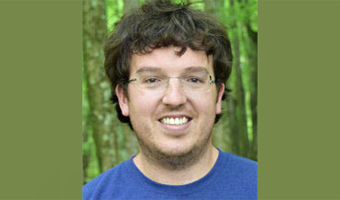The Environmental & Plant Biology Colloquium Series presents Dr. Zachary Freedman on “Don’t Miss the Microbes for the Trees: A Potential Mechanism Fostering Ecosystem C Storage under Future Rates of N Deposition” on Friday, Oct. 20, at 11:50 a.m. in Porter 104.

Dr. Zachary Freedman
Freedman is an Assistant Professor in the School of Agriculture and Food, Division of Plant and Soil Sciences, at West Virginia University
Abstract: Soil organic matter (SOM) decomposition is a globally important and enzymatically-complex biogeochemical process. It is mediated by a diverse assemblage of saprophytic microorganisms, and can be suppressed by anthropogenic N deposition. In a northern hardwood forest ecosystem in Michigan, USA, twenty years of experimentally increased N deposition has reduced forest floor decay and increased soil C storage (+18%). Here, we paired extracellular enzyme assays with high-throughput DNA sequencing and shotgun metagenomics to determine if anthropogenic N deposition has altered the functional potential of microbial communities to degrade SOM in our long-term field experiment. Experimental N deposition reduced lignocellulolytic enzyme activity and changed the metagenomic composition of the microbial community inhabiting decaying forest floor, providing indirect evidence that compositional shifts elicited a functional response in our long-term field experiment. The activity of extracellular enzymes mediating plant litter and humus decay, cellobiohydrolase and peroxidase, were ~50% lower under experimental N deposition. Experimental N deposition significantly affected the relative abundances of genes associated with 58 of 177 pathways within the Carbohydrates, Metabolism of Aromatic Compounds (MAC), and Respiration Subsystems level 3 classifications, 44 of which increased in abundance between the ambient and experimental N deposition treatment. However, neither the abundance nor composition of fungal lignocellulolytic genes was impacted by experimental N deposition. Results presented here provide evidence that changes in the functional capacity of saprotrophic soil microorganisms may mediate how anthropogenic N deposition increases the storage of C in soil.



















Comments